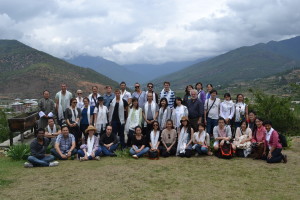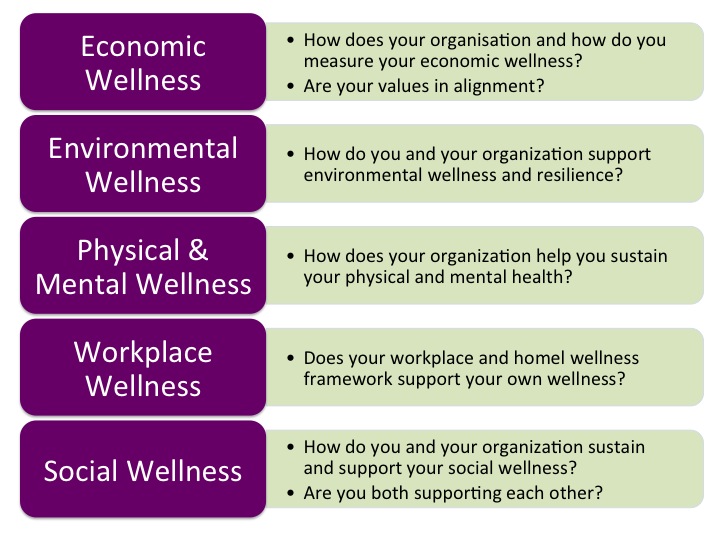This week I had the pleasure of interviewing Khatiza Van Savage, Founder and Chief Happiness Architect of Insightful Learning Journeys. She provides journeys for senior women leaders in transition to Bhutan and she gives an insight on how the Gross National Happiness Index can be applied in your lives and achieve small business growth in the process.
Khatiza, born in the North Eastern part of India, was inspired daily by the backdrop of the foothill of the serene Himalayas. She had many Bhutanese friends at school and their pride, humility, graciousness and their Buddhist approach to everyday action fascinated her from an early age.
An eternal student, she was always curious about people’s motivation, she envisioned bridging the learning between East and West and pursued a career in Organizational Development. After 20 years of global consulting experience, aligning people and process with strategy. She woke up one day and realized she wanted something that hit closer to home. She was going through a career transition and it became apparent to her that she wanted to take her corporate experience & her experience with the Bhutan Happiness Index closer to other women like her in their own life transition.
Small Business Growth Tips From Khatiza
For years Khatiza had been working with corporates to think beyond bottom line and to look at how to increase results through growing people’s happiness. The government developed the Gross National Happiness Metrics in the 1970s already, but it only became more concrete in the 90’s.
growing people’s happiness. The government developed the Gross National Happiness Metrics in the 1970s already, but it only became more concrete in the 90’s.
Khatiza realized Bhutan could be a learning lab, she decided to see if she could learn more about the system and how she could apply it to organizations. She started to realize that each aspect could be applicable to an individual and also to help small business reach out to their clients.
Khatiza believes that she was put here to make the world a better place and she does that by sharing her roots and helping others who are in this struggle to overcome.
3 Reasons why happiness helps boost small business growth
People usually underestimate how holistic views matter when it comes to small business growth. Here are the 3 things to be mindful of at work.
1. A Happy You Means a More Creative You: A Study by Amabile et al (2005) uncovered evidence suggesting that happiness provokes greater creativity. Now if you can imagine the implications for your company, if you were happier: You would have more innovative ideas for marketing, and for how you manage processes and people.
 2. A Happy You Means Happier Customers: Studies have linked happiness with generosity and altruism. This is all about graciousness applied. If you don’t feel happy, you probably don’t want to give, and it’s harder for you to be a person of service to others. Imagine if you are always giving to your customers, how much value they will get and how much more business they will give you?. Happiness is contagious!
2. A Happy You Means Happier Customers: Studies have linked happiness with generosity and altruism. This is all about graciousness applied. If you don’t feel happy, you probably don’t want to give, and it’s harder for you to be a person of service to others. Imagine if you are always giving to your customers, how much value they will get and how much more business they will give you?. Happiness is contagious!
A study by Isen et al (1978) found that positive aspects lead to greater altruistic helping of others. This was again verified by Kirchsteiger, Rigotti and Rustichini (2006) for gift-exchange.
3. A Happy You Means a More Productive You: There are tons of research including that of Baker et al (1997), Boehm and Lyubomirsky (2008), Paterson et al (2004), Steele and Aronson (1995) and Tsai et al (2007) that have found that emotions affect your performance. Therefore if you are happier, you perform better. Think about the time you spend your work, the amount of time you spend procrastinating less.
Some areas to explore when developing a Happiness Index are:
Khatiza’s 3-Step Process to Being Happier at Work
1. Identify priorities / value systems
We often don’t spend enough time looking at the bigger picture. For us to be happier, we need to be clear about our personal happiness. We need to understand our internal triggers vs external triggers.
Spend some time assessing your priorities and value systems. What Khatiza does with her customers is to look at the Bhutan Happiness Model and they review where they are in each area. This is something you can also do at home and you can assess which areas matter more than others. How does each of these areas matter to you?
2. Identify areas to focus on
Next you need to understand which stage you are in at the moment. One of the things to look at is the Maslow hierarchy of needs. If you are at the bottom, look at how you can solve it. If you are further ahead, you need to look at where you are and where you want to be.
3. Explore, go on a journey
Oftentimes, we are unaware of the emotions we are going through. One of the simplest tools you can use is a journal. Take time to reflect on what happened today. What results were you most proud of? What would you like to do to get better?
If you are interested in going on your transitional journey with Khatiza to explore where you want to take your life, visit her site at www.insightfuljourneys.com








